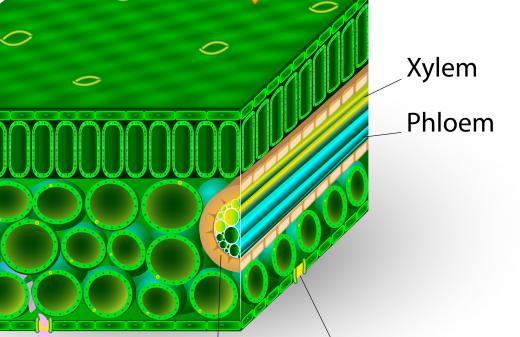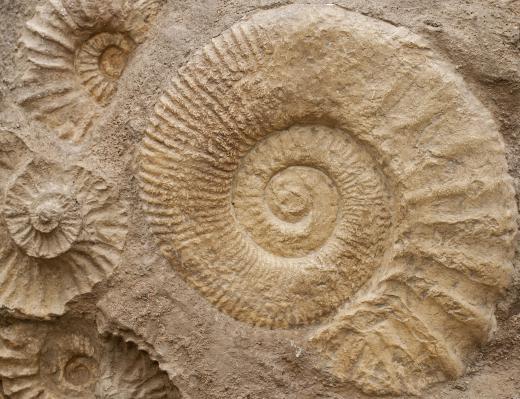What Was the Devonian Period?
 Michael Anissimov
Michael Anissimov
The Devonian period is the fourth of six geologic periods that make up the Paleozoic era, the oldest era of multicellular life on Earth, extending from about 542 to 251 million years ago. The Devonian period itself extends from roughly 416 to 359 million years ago. The Devonian is sometimes called "The Age of Fishes" due to the abundance and diversity of fish genera that evolved during this time. The ammonites also emerged during the Devonian period. These nautilus-like organisms continued to thrive until the extinction of the dinosaurs only 65 million years ago.
The Devonian period was particularly important in the evolution of Earthly life. Fish first evolved legs and began to walk on land as tetrapods, and the first insects and spiders colonized the land as well. The ancestors of millipedes had already achieved this several tens of millions of years before, during the Silurian, but the Devonian period represented the first serious diversity of life on land. Fish legs evolved from muscular fins that fish would have used to push themselves over small land bridges separating bodies of water.

The Devonian period also saw the first seed-bearing vascular plants, which produced the first true forests, leading to a virtuous cycle of soil buildup and plants taking advantage of that soil. These forests contained various primitive insects, including the first spiders in the fossil record, mites, springtails, and extinct mite-like arachnids called trigonotarbids. Trigonotarbids were among the first land predators, while the other organisms lived off leaf litter and tree sap, as is evidenced by tiny punctures in the well-preserved plant fossils of the Devonian period.

Calcareous algae and coral-like stromatoporoids built great reefs, thousands of kilometers long, around the edges of Devonian continents, but near the end of the period were wiped out by a mass extinction. Reef-building did not recover for over a hundred million years after, when different organisms took up this activity.
The extinctions that hit during the close of the Devonian period affected the organisms that lived in shallow, warm water the most, and cold-water organisms and land organisms the least. Around 364 million years ago, jawless fishes abruptly disappear from the fossil record. 57% of marine genera went extinct. Today, reasoning behind the cause of the Devonian extinction is largely speculative, though the usual suspects have been proposed: asteroid impact, climate change, methane hydrate release, etc.
AS FEATURED ON:
AS FEATURED ON:












Discuss this Article
Post your comments